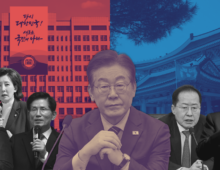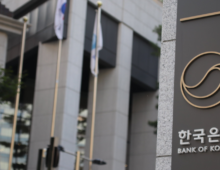South Korea’s Ministry of Employment and Labor announced the findings of its “Survey on Working Hours.” The survey revealed that while the 52-hour workweek (comprising 40 legal hours plus 12 hours overtime) is largely effective, some industries and occupations continue to struggle. Public opinion was split; 48.2% acknowledged its benefit in reducing long working hours, whereas 54.9% pointed out the challenges in catering to the diverse needs of various sectors. In response, businesses have adopted strategies like inclusive wages, additional hiring, order reductions and, in some cases, disregarding legal regulations.
Following these insights, the government has pledged to maintain the 52-hour framework but with an emphasis on flexible management for “certain business sectors with heavy workloads.” The government aims to collaborate with labor and management to introduce measures allowing choice in overtime management, ensuring fair work compensation and safeguarding health rights. Deputy Minister Lee Seong-hee emphasized the government’s position that it would not unilaterally push these reforms, underscoring the importance of forming a national consensus through labor-management-government dialogue. The ministry also plans to support small and medium-sized enterprises in managing working hours effectively, including the provision of a free attendance record management program.
South Korea’s Ministry of Employment and Labor announced the findings of its “Survey on Working Hours.” The survey revealed that while the 52-hour workweek (comprising 40 legal hours plus 12 hours overtime) is largely effective, some industries and occupations continue to struggle. Public opinion was split; 48.2% acknowledged its benefit in reducing long working hours, whereas 54.9% pointed out the challenges in catering to the diverse needs of various sectors. In response, businesses have adopted strategies like inclusive wages, additional hiring, order reductions and, in some cases, disregarding legal regulations.
Following these insights, the government has pledged to maintain the 52-hour framework but with an emphasis on flexible management for “certain business sectors with heavy workloads.” The government aims to collaborate with labor and management to introduce measures allowing choice in overtime management, ensuring fair work compensation and safeguarding health rights. Deputy Minister Lee Seong-hee emphasized the government’s position that it would not unilaterally push these reforms, underscoring the importance of forming a national consensus through labor-management-government dialogue. The ministry also plans to support small and medium-sized enterprises in managing working hours effectively, including the provision of a free attendance record management program.
Get your
KoreaPro
subscription today!
Unlock article access by becoming a KOREA PRO member today!
Unlock your access
to all our features.
Standard Annual plan includes:
-
Receive full archive access, full suite of newsletter products
-
Month in Review via email and the KOREA PRO website
-
Exclusive invites and priority access to member events
-
One year of access to NK News and NK News podcast
There are three plans available:
Lite, Standard and
Premium.
Explore which would be
the best one for you.
Explore membership options
© Korea Risk Group. All rights reserved.
No part of this content may be reproduced, distributed, or used for
commercial purposes without prior written permission from Korea Risk
Group.











